Kiwifruit are looking good in Hawkes Bay. Some flooded vines have died but generally recovery is better than expected. Conditions are very dry in Marlborough so many farmers are offloading stock due to concerns over feed and water levels.
Te Tai Tokerau/Northland had some welcome rain this week - about 30 millimetres, but follow up is needed to break the dry spell. Dairy farmers are in a good head space apparently - that's with the forecast payout going up. Dairy cow pregnancy testing is well underway and results are normal, with 10 to 15 percent empty. The labour shortage, which has been an issue for several years, is even more dire this year.
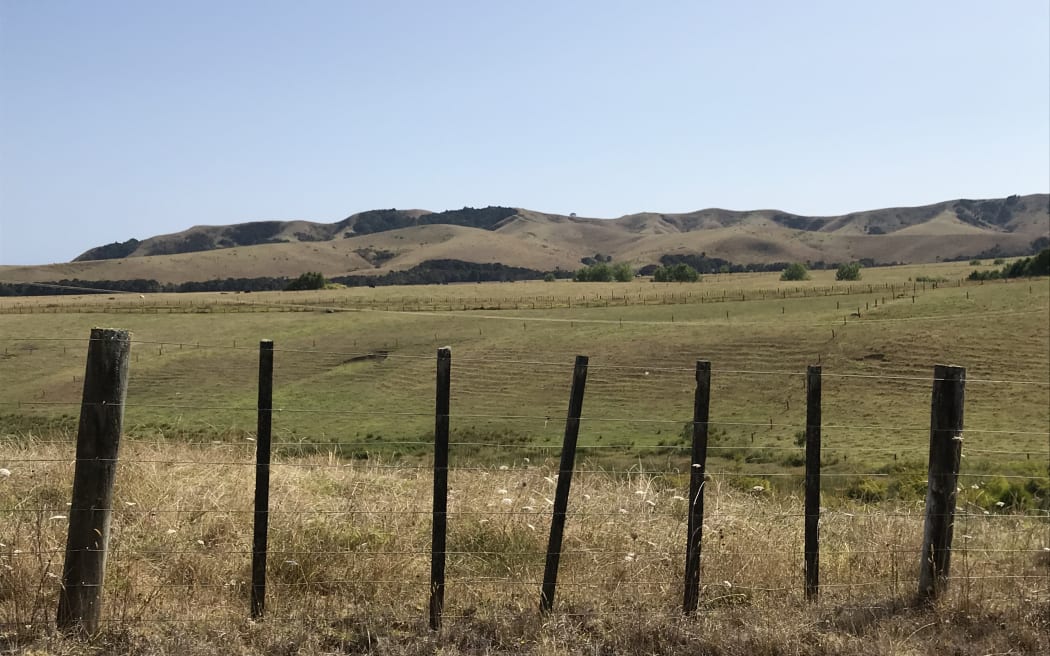
Photo: RNZ / Liz Garton
In Pukekohe extensive areas of leafy green crops have been planted for winter but prolific numbers of diamond black moths and army worm are getting a meal first. Growers are saying demand for their crops is very weak and the prices they're receiving very disappointing.
On Waikato dairy farms, grass is growing, cows are milking and supplementary feed isn't needed, even though some are feeding out. The price of maize silage has plummeted, there's no demand from cow farmers and grain operators aren't interested because they still have full silos from last year. In the hot, dry conditions the maize is ripening really quickly though, so farmers will have to cut it whether they want to or not, they just can't hold out for the market to pick up a bit.
Bay of Plenty kiwifruit growers are positive. Picking started for the new red variety this week and some orchardists are finding quite a few small fruit in their crops. Gold growers are gearing up for harvest and are quietly hopeful with good volume on the vines.
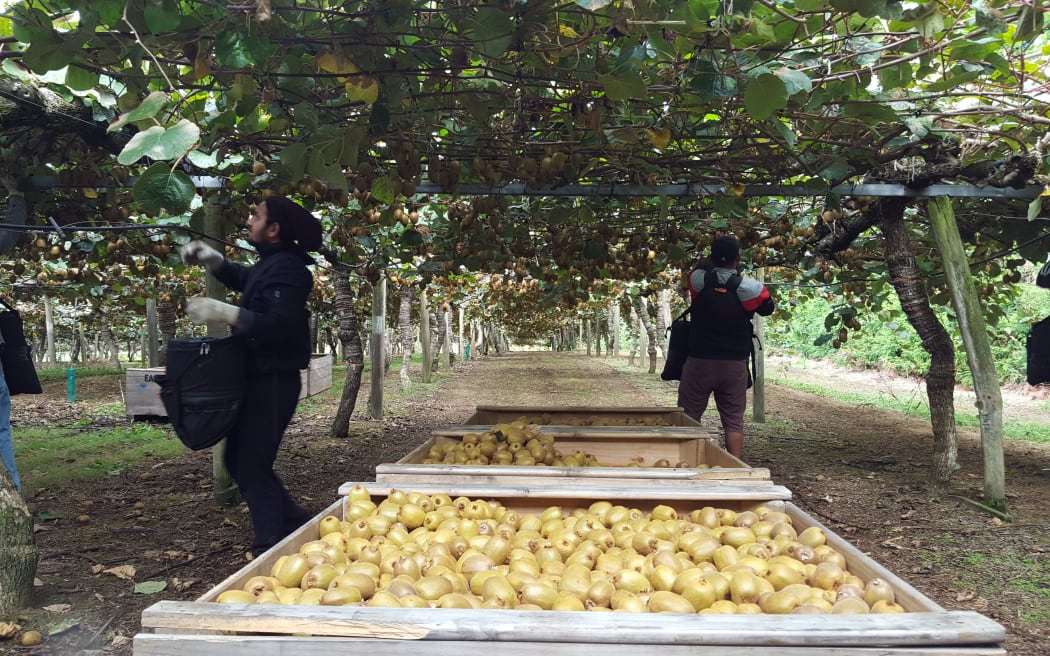
Photo: Susan Murray/RNZ
There is plenty of grass on King Country farms. It's not great quality at this time of year, but stock are doing OK and at last lambs are starting to put on some weight but, as there is everywhere, there is dismay at the low prices being paid for store lambs. Early lambing farmers are putting the ram out, and those with weaner cattle to sell are preparing for sale yard fairs over the next couple of weeks .
Taranaki has had what is being called a "kind" summer. Farms generally are looking green but there are localised dry patches with brown pasture. One dairy farmer said "covers are adequate but not exciting". Some are feeding out and those into autumn calving have just started and it's going well. Maize harvesting's well underway
Manawatu is also having a "normal' summer which means it's getting dry. Twenty five millimetres of rain is needed and lots of cow herds are getting fed supplements to keep mlking. There's plenty of feed in the hill country so there's no pressure to sell lambs at present. Barley growers are relatively happy with the yields they've been harvesting. Fodder beet and kale looks good so farmers are feeling comfortable going into winter.
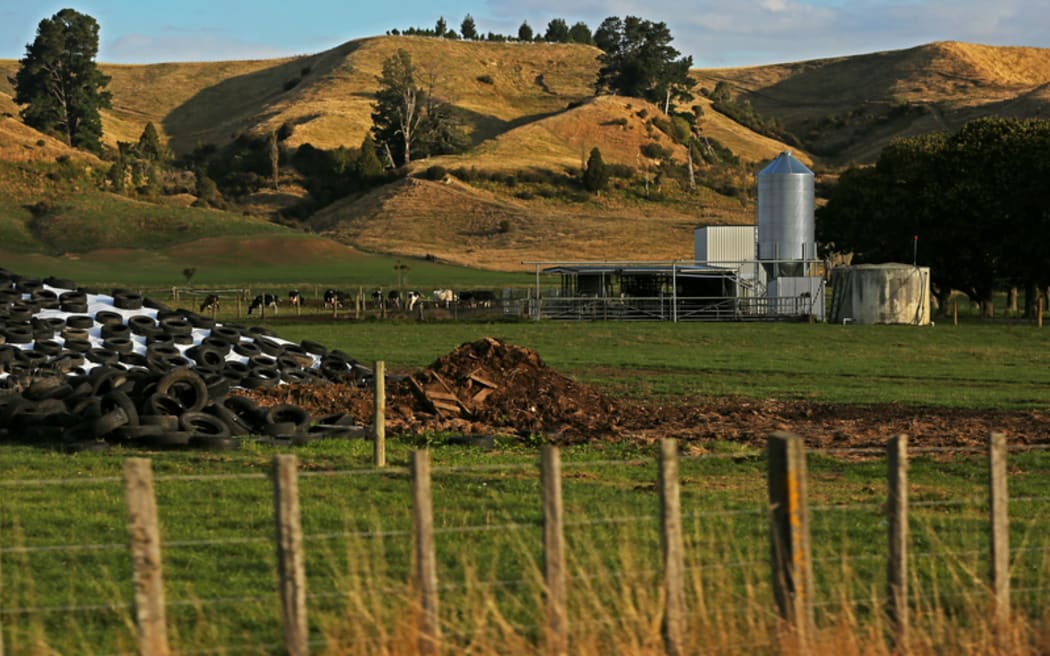
Dairy farm at Apiti, Manawatu. Photo: RNZ / Alexander Robertson
It's similar in Te Tai Rāwhiti - farm conditions are pretty good, February has been dry, but after a wet, green January, that's okay. Stock are holding condition although lambs are a little flat so not putting on the weight one would hope and, generally, our contact says farmers are also a bit down. They have no choice but to keep going forward, but with forestry slash still lying around, poor product prices and high input costs, they don't feel like smiling. Rams are going out here too with more farmers getting into no wool, or self-shedding breeds because they're fed up with shearing costing a lot of money and wool being worth nothing.
In Hawkes Bay the kiwifruit vines that survived the flooding have good looking gold crops on them. Some vines have died but generally the recovery's been better than expected. Apple orchards that growers thought wouldn't recover, have, and crops are looking okay .. they're flat out picking royal gala and posy varities.
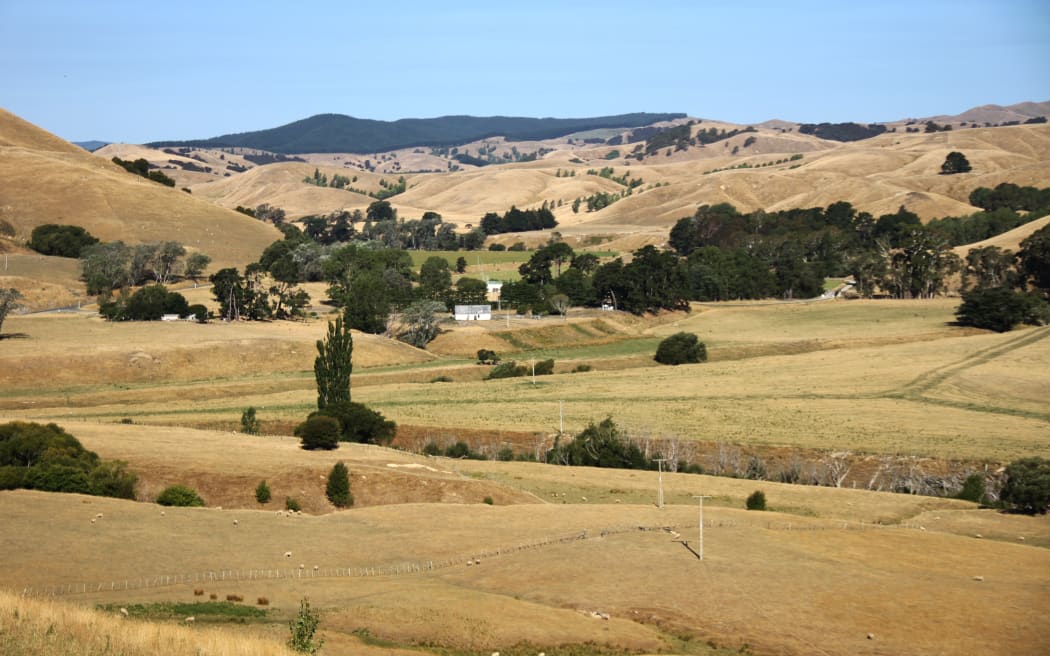
Dry farm land in Wairarapa, east of Masterton. Photo: RNZ / Alexander Robertson
Wairarapa is really dry, there's been no decent rain since December and it's getting frustrating. As in Gisborne, farmers aren't exactly smiling. Dealing with the dry, low lamb prices and on-going cyclone recovery is taxing. The grape harvest is starting which is a little earlier than normal.
Horowhenua is very, very dry. Our farmer contact says it's the driest summer in many years. The region is normally summer safe. Dairy farmers are feeding a lot of supplements to cows and many are once a day milking. Maize is being cut early because if it doesn't come off now, it will die .. and if it stays this dry, there may be some willing buyers popping up soon. Cull cows are starting to fill up local meat works which have been quiet.
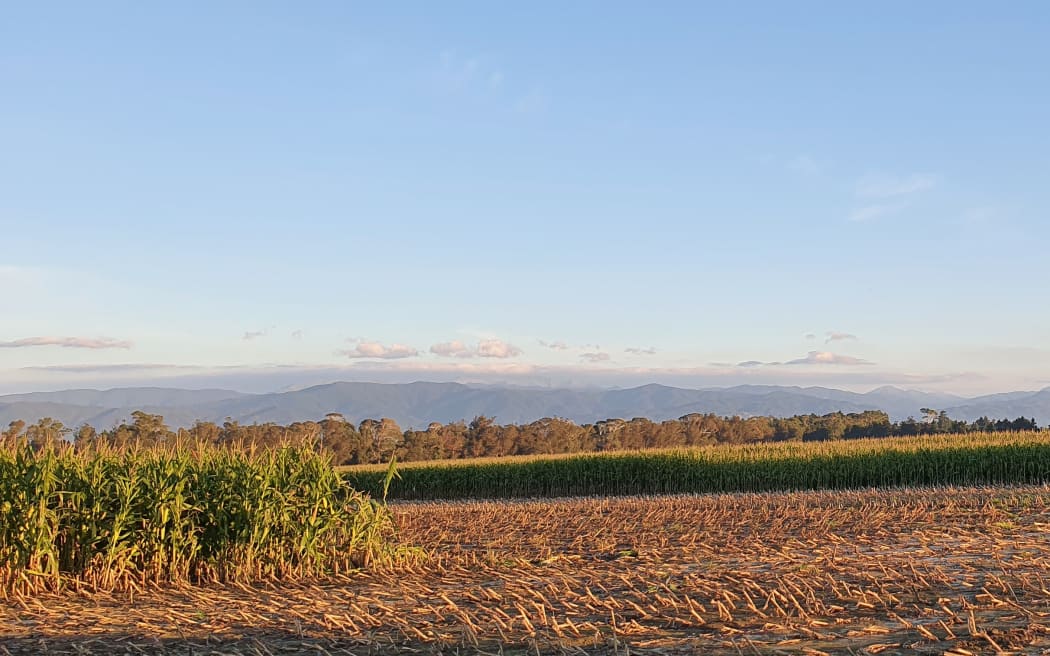
Maize harvest Photo: RNZ/Sally Round
Across Cook Strait to the Whakatū-Tasman region, the apple harvest has just started. Drought conditions are starting to bite with smaller fruit than normal coming off trees. Around Motueka and Moutere there's been little rain since December when the region could normally expect Christmas rains and follow-up during January. If moisture doesn't arrive in the next couple of weeks it will be dire.
And it's the same in Marlborough. .. really really dry with farmers offloading stock due to concerns over feed and water levels. One Marlborough farmer says he's only recorded 120 millimetres of rain in the past eight months. Farmers are already feeding out winter feed supplies and dairy farmers are reducing milking. PGG Wrightson brought forward its first annual weaner fair of the season to this week .. which is three weeks ahead of schedule, to let drought hit farmers off load stock now.
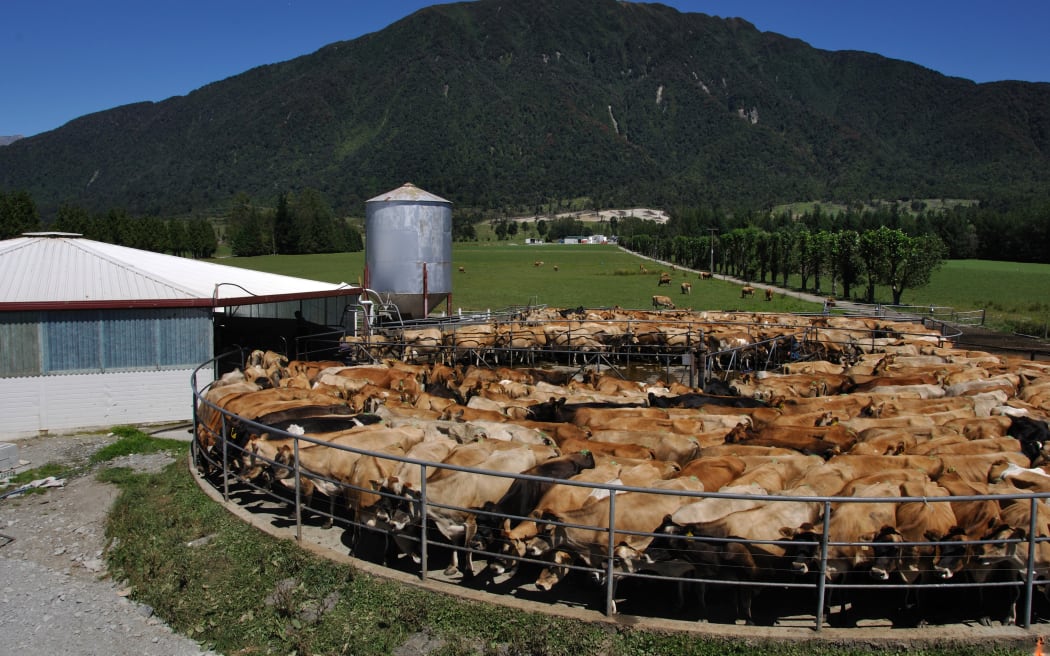
Photo: Air West Coast/ 123rf
On the West Coast pasture covers are good. Summer hasn't been too wet and it hasn't been too dry. Dairy farmers have made plenty of supplements, it's probably one of the best seasons in a long time. And thanks to the better looking payout, they're certainly happier now than at the start of the season.
A bit of rain in Canterbury this week has dampened the dust for a couple of days. All eyes are on the rain forecast for this weekend and early next week to get pastures and winter feed crops growing again. Harvest for most is well through with only late crops such as red clover and radish still to go. Overall it has gone well with a good period of hot dry weather. Yields across the board are at or slightly above average. The concern going forward is limited grass seed contracts for next year's harvest. Many arable farmers are currently scratching their heads about what they can grow this coming year.
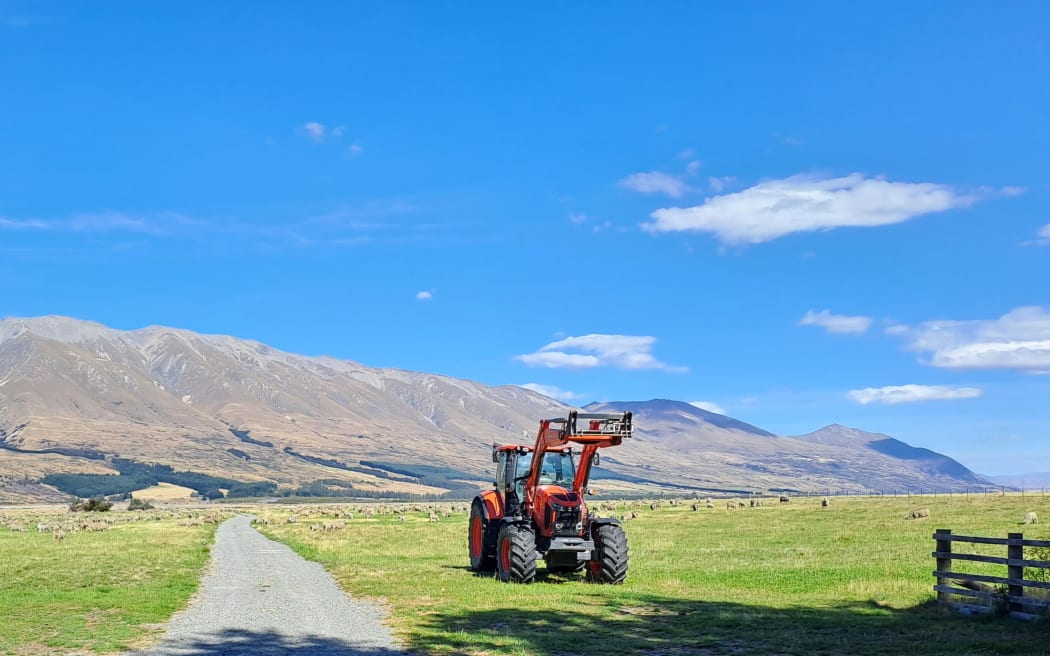
A tractor in the Mackenzie Basin Photo: Susan Murray
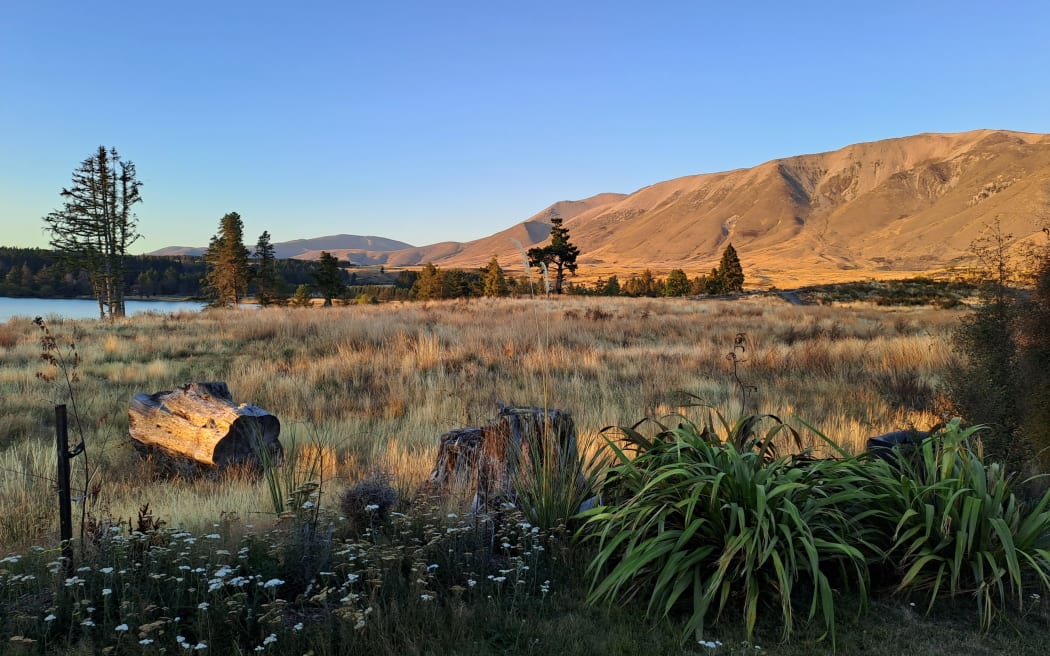
Central Otago Photo: Susan Murray
Central Otago looks like a tinder box and farmers want the wind funnelling through from the West Coast to stop. Animals are in good condition but some farmers are now feeding out. Those horticultural and dairy farmers needing water from local irrigation schemes are finding it in short supply. They're only allowed to take 25 percent of what they have consent for normally..
And finally Southland is having a pearler inside the farm gate.. and a shocker outside it what with low prices and high input costs. Grass growth is terrific, although the north of the district's getting a bit dry now. Stock are in top order and there isn't enough to keep on top of the growth. Fodder beet, kale and swedes for winter are looking fantastic.
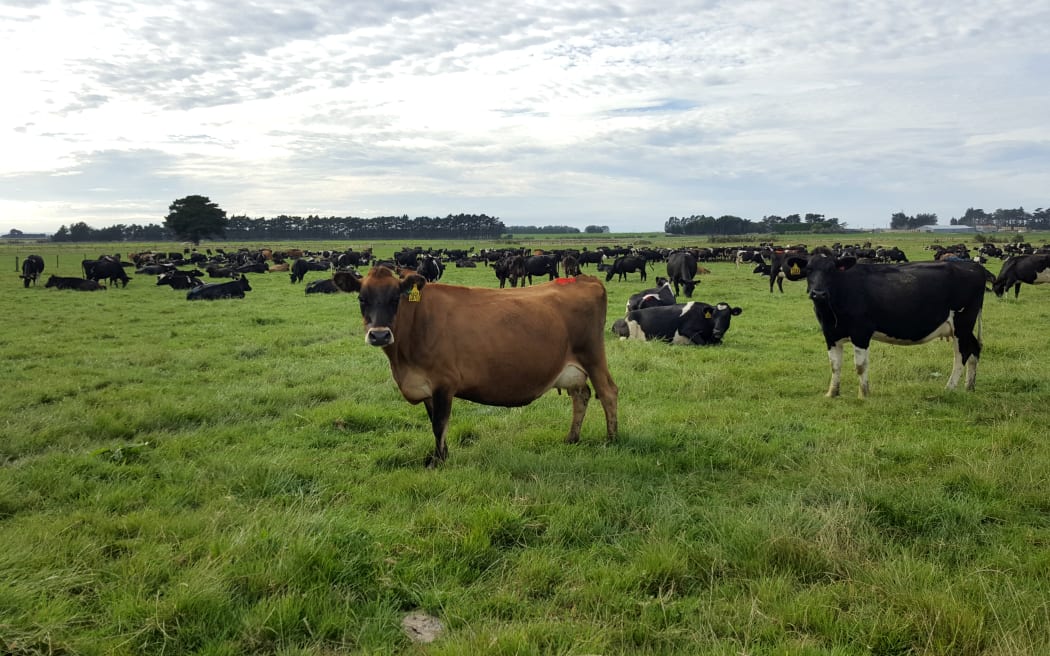
Photo: RNZ/Cosmo Kentish-Barnes

